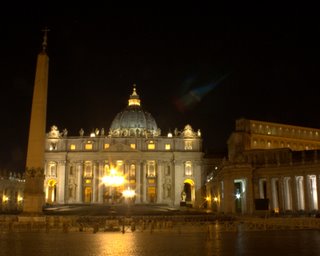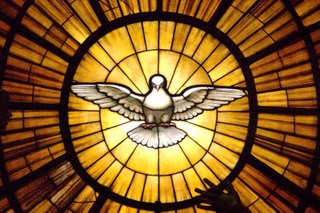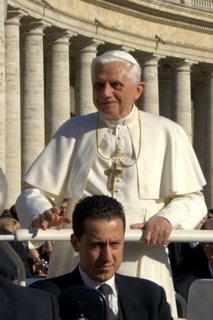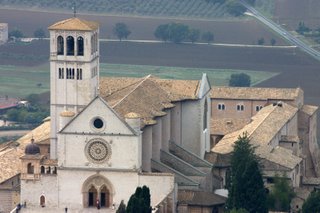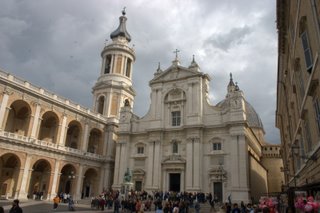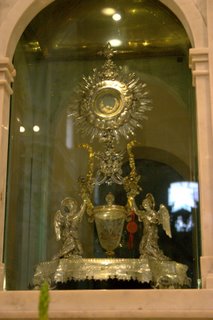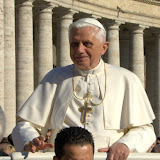Faith Seeking Understanding for November 26, 2006
We have reached the end of another Liturgical Year as we celebrate the Feast of Christ the King today, and prepare for the First Sunday of Advent next week. Hopefully, everyone had an enjoyable Thanksgiving spent with family and friends, to thank God for the blessings of this past year. Recounting our blessings often spurs us to imitate Christ in His boundless generosity and to give of ourselves in return.
Clement of Alexandria was concerned for those who had been blessed with material possessions, and so he wrote the treatise: “Who is the rich man who may be saved?” This treatise explores the meaning of ownership and property, the role of wealth in human life, its dangers and pitfalls, but also its blessings.
He begins by beautifully presenting the hope of salvation, even for the wealthy: “let not the man that has been invested with worldly wealth proclaim himself excluded at the outset from the Savior’s lists, provided he is a believer and one who contemplates the greatness of God's philanthropy” (n. 3). But, this does not mean the path will be easy: “Nor let him, on the other hand, expect to grasp the crowns of immortality without struggle and effort, continuing untrained, and without contest.”
What is the path to salvation, even for the rich man? “Let him go and put himself under the Word as his trainer, and Christ the President of the contest; and for his prescribed food and drink let him have the New Testament of the Lord; and for exercises, the commandments; and for elegance and ornament, the fair dispositions, love, faith, hope, knowledge of the truth, gentleness, meekness, pity, gravity: so that, when by the last trumpet the signal shall be given for the race and departure hence, as from the stadium of life, he may with a good conscience present himself victorious before the Judge who confers the rewards, confessedly worthy of the Fatherland on high, to which he returns with crowns and the acclamations of angels.”
“Riches, then,” he says, “which benefit also our neighbors, are not to be thrown away” (n. 14) but rather rightly used for their benefit. He continues, by reminding the reader that even those who have cast off their possessions may still be afflicted by the passions, whereas the proper use of possessions and wealth can serve even to rightly order our desires and help us grow in holiness.
“If one is able in the midst of wealth to turn from its power, and to entertain moderate sentiments, and to exercise self-command, and to seek God alone, and to breathe God and walk with God” (n. 26), this is the rich man who may be saved, not through his own efforts, but by the God’s grace.
Finally, I would like to remind everyone of some upcoming events:
On Tuesday, November 28th, at 7:00 pm, Steve Ray will be at St. John Neumann to offer a presentation about the Holy Land pilgrimage coming up in March. Come and learn about the places where our Lord walked and taught.
The following Tuesday, December 5th, at 7:00 pm, the parish presents Leonardo Defilippis as Maximilian: Saint of Auschwitz. Tickets are free for parishioners; simply stop by the office and pick them up, and don’t miss this excellent performance!
Have a blessed week as we prepare for the Advent of our Lord.
